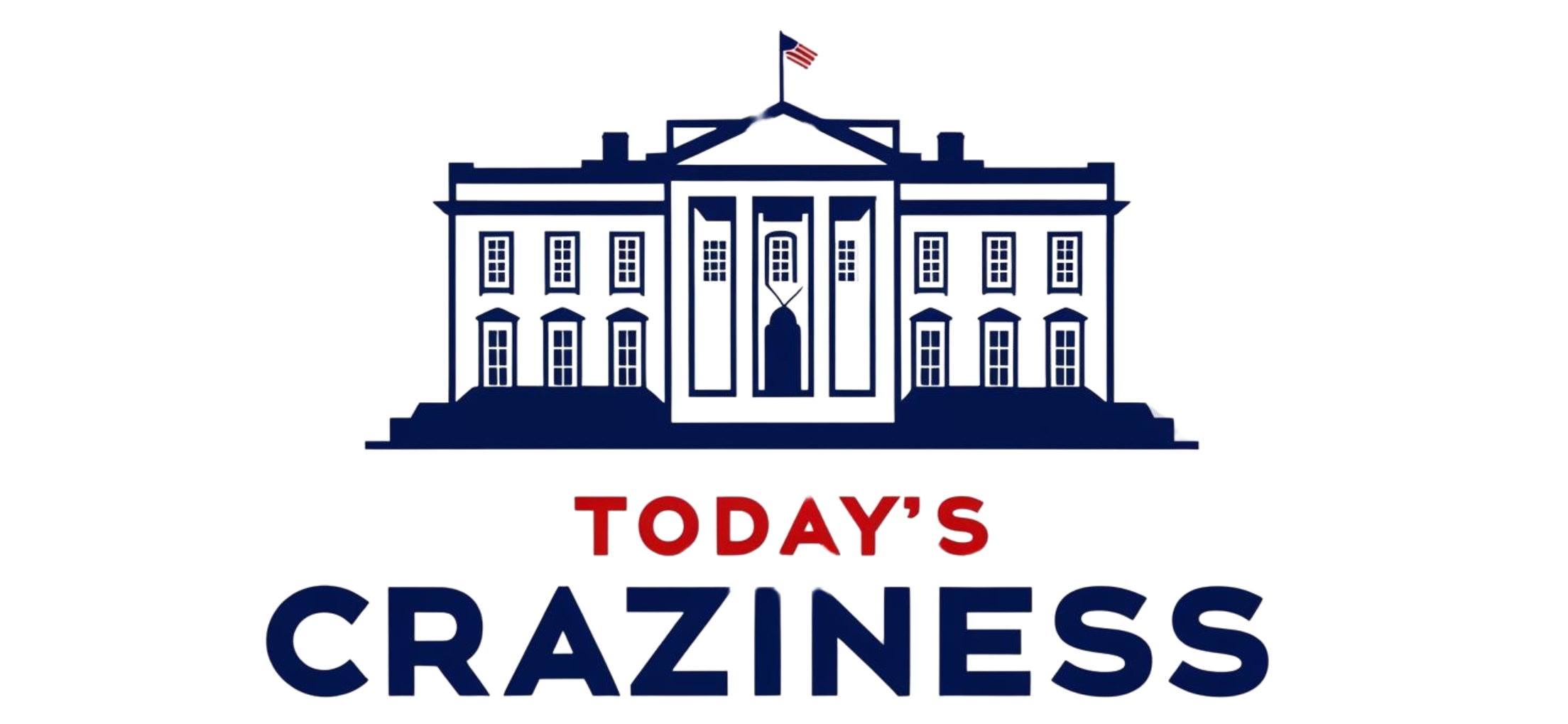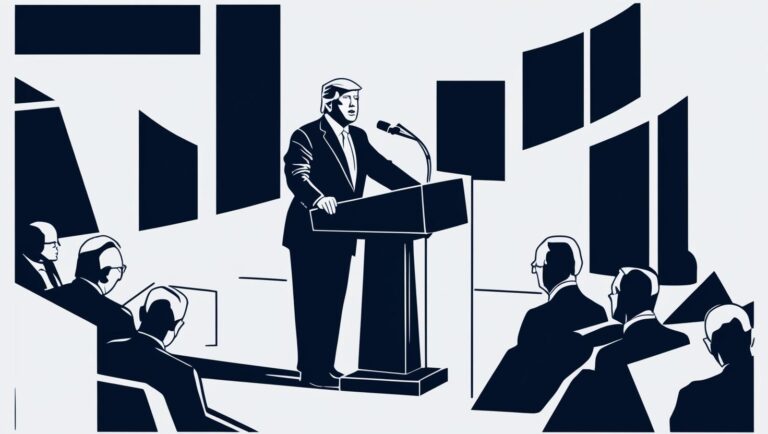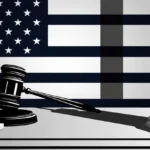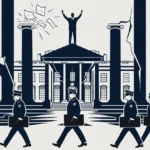Trump revokes top security clearances, targets climate lawsuits, and signs sweeping legal reform orders—escalating federal power plays and igniting bipartisan alarm. A high-stakes fighter jet deal and clashes with state leaders further reshape today’s volatile political landscape.
On March 22, 2025, President Donald Trump undertook several significant actions spanning legal reforms, state relations, and national security initiatives. Below is a categorized summary of these activities:
1️⃣ Executive Orders & Policy Actions
Preventing Abuses of the Legal System and Federal Courts
- 🔑 Key Takeaways:
- What happened? President Trump signed a memorandum directing the Attorney General to seek sanctions against lawyers and law firms engaging in frivolous litigation against the United States.Reuters+1Politico+1
- Why does it matter? This aims to deter unwarranted legal actions, ensuring the integrity and efficiency of the legal process.
- Who is impacted? Legal professionals and entities involved in litigation against the federal government.
- Potential consequences: Short-term: Increased scrutiny of legal actions against the government. Long-term: Potential reduction in frivolous lawsuits.
- Implications: Legal and regulatory, affecting the conduct of law firms and attorneys.
- 📄 Summary: On March 22, 2025, President Trump signed a memorandum titled “Preventing Abuses of the Legal System and the Federal Courts.” This directive instructs the Attorney General to pursue sanctions against legal practitioners who engage in frivolous, unreasonable, or vexatious litigation against the United States or in matters before federal agencies. The administration emphasizes that such unwarranted legal actions burden the judicial system and divert resources from legitimate cases. By implementing this measure, the administration seeks to uphold the integrity of the legal process and discourage misuse of the courts. This move reflects a broader effort to enhance governmental efficiency and reduce unnecessary legal expenditures.Reuters+1Politico+1
- 📜 Bibliography:
- Source: ReutersPolitico+6Reuters+6Reuters+6
- URL: https://www.reuters.com/legal/trump-signs-memo-aimed-preventing-abuse-legal-system-federal-courts-2025-03-22/
- Verification: This source was verified as published on March 22, 2025, Eastern Time (ET).
2️⃣ Public Statements & Press Briefings
Demand for Apology from Maine Governor
- 🔑 Key Takeaways:
- What happened? President Trump demanded a public apology from Maine Governor Janet Mills regarding her opposition to his executive order on transgender athletes.Politico
- Why does it matter? The demand underscores federal-state tensions over social policies.Reuters+4WSJ+4Reuters+4
- Who is impacted? State officials, educational institutions, and transgender athletes.
- Potential consequences: Short-term: Strained federal-state relations. Long-term: Potential policy shifts at the state level.
- Implications: Political and social, affecting state compliance with federal directives.
- 📄 Summary: On March 22, 2025, President Trump publicly demanded a “full-throated apology” from Maine Governor Janet Mills following her opposition to his executive order banning transgender athletes from women’s sports. During a previous governors’ meeting, Mills had challenged the president’s stance, leading to federal investigations into Maine’s compliance with Title IX regulations. The administration has threatened to withhold federal funding from Maine’s educational institutions unless the state aligns with the executive order. This confrontation highlights the ongoing national debate over transgender rights and federal versus state authority in policy implementation.Politico
- 📜 Bibliography:
- Source: Politico
- URL: https://www.politico.com/news/2025/03/22/donald-trump-trans-athletes-maine-00003871Politico
- Verification: This source was verified as published on March 22, 2025, Eastern Time (ET).
3️⃣ Meetings & Diplomacy
Engagement with Oil Industry Executives
- 🔑 Key Takeaways:
- What happened? President Trump met with executives from major oil companies to discuss state climate laws and related lawsuits.WSJ+1WSJ+1
- Why does it matter? The discussions could influence federal support for the fossil fuel industry against state-imposed climate regulations.WSJ
- Who is impacted? Oil companies, state governments, and environmental advocacy groups.WSJ
- Potential consequences: Short-term: Potential legal actions against state laws. Long-term: Shifts in national climate policy and state-federal relations.
- Implications: Legal and environmental, affecting climate change mitigation efforts.Reuters
- 📄 Summary: On March 22, 2025, President Trump convened a meeting with top executives from leading oil companies, including Exxon Mobil and Chevron, at the White House. The discussions focused on recent state-level climate superfund laws that impose substantial fines on fossil fuel companies for greenhouse gas emissions. Industry leaders expressed concerns over these regulations and the numerous climate-related lawsuits filed by state and local governments. The administration is considering supporting the industry through possible legal interventions, such as the Department of Justice filing briefs or initiating lawsuits against states like New York and Vermont. These states have enacted laws aiming to hold fossil fuel companies financially responsible for environmental damages. The outcome of these deliberations could significantly impact the balance between state-led climate initiatives and federal energy policies.WSJ
- 📜 Bibliography:
- Source: The Wall Street JournalReuters
- URL: https://www.wsj.com/business/energy-oil/oil-companies-seek-trumps-help-to-thwart-climate-lawsuits-superfund-laws-7e332d0dWSJ
- Verification: This source was verified as published on March 22, 2025, Eastern Time (ET).
4️⃣ Campaign & Political Engagements
No significant activities reported on March 22, 2025.
5️⃣ Legislative Approvals & Vetoes
No significant activities reported on March 22, 2025.
6️⃣ National Security & Crisis Response
Revocation of Security Clearances for Political Figures
- 🔑 Key Takeaways:
- What happened? President Trump signed an order revoking the security clearances of several former officials, including Kamala Harris, Hillary Clinton, and others.
- Why does it matter? The decision is unprecedented in scope, signaling a hardline stance against perceived political adversaries.
- Who is impacted? Former government officials and national security personnel; potentially current government processes that involve cross-administration collaboration.
- Potential consequences: Short-term: political fallout and legal scrutiny; Long-term: changes to clearance retention policies for former officials.
- Implications: Legal and national security; raises questions about precedent and partisan use of executive authority.
- 📄 Summary: On March 22, 2025, President Trump issued a presidential memorandum revoking the security clearances of several prominent former officials, including former Vice President Kamala Harris, former Secretary of State Hillary Clinton, former DNI James Clapper, and others. The memorandum cites concerns about “continued misuse of privileged access” and states that these individuals no longer require access to classified materials. Critics argue the action is politically motivated, especially given that some individuals named are vocal critics of the administration. The White House defended the decision, citing national security concerns and the administration’s broader efforts to restrict access to sensitive government information. Legal analysts suggest that while the president has broad authority over classified information, such sweeping revocations are rare and may invite judicial review.
- 📜 Bibliography:
- Source: WhiteHouse.gov
- URL: https://www.whitehouse.gov/presidential-actions/rescinding-security-clearances-access-classified-information-specified-individuals/
- Verification: This source was verified as published on March 22, 2025, Eastern Time (ET).
- Source: Reuters
- URL: https://www.reuters.com/world/us/trump-pulls-security-clearances-kamala-harris-hillary-clinton-2025-03-22/
- Verification: This source was verified as published on March 22, 2025, Eastern Time (ET).
7️⃣ Judicial & Legal Affairs
Legal Sanctions Against Frivolous Lawsuits Targeting the U.S. Government
- 🔑 Key Takeaways:
- What happened? President Trump instructed the DOJ to penalize lawyers who file lawsuits deemed frivolous or politically motivated against the federal government.
- Why does it matter? The policy aims to deter politically driven legal challenges but may stoke concerns about First Amendment rights and judicial independence.
- Who is impacted? Attorneys, legal firms, civil rights groups, and public interest litigators who often challenge federal policy.
- Potential consequences: Short-term: cooling effect on anti-government litigation; Long-term: potential erosion of access to legal recourse.
- Implications: Legal; may be challenged in court as a possible overreach of executive power.
- 📄 Summary: As part of a March 22 directive, President Trump issued a memorandum authorizing the Attorney General to pursue financial and professional penalties against lawyers who bring lawsuits perceived as abusive or frivolous. The move is framed by the administration as necessary to preserve the integrity of the federal legal system and reduce administrative burdens caused by politically motivated cases. The DOJ is now expected to apply heightened scrutiny to civil litigation naming the U.S. government or federal officials as defendants. Legal experts note that while the DOJ has some discretion in pursuing sanctions under existing federal rules, this kind of presidential order represents a more aggressive approach. The policy is likely to face challenges in federal courts, particularly from civil liberties and watchdog organizations.
- 📜 Bibliography:
- Source: Reuters
- URL: https://www.reuters.com/legal/trump-signs-memo-aimed-preventing-abuse-legal-system-federal-courts-2025-03-22/
- Verification: This source was verified as published on March 22, 2025, Eastern Time (ET).
- Source: WhiteHouse.gov
- URL: https://www.whitehouse.gov/presidential-actions/preventing-abuses-legal-system-federal-court/
- Verification: This source was verified as published on March 22, 2025, Eastern Time (ET).
8️⃣ Economic & Market Impact
Boeing Contract for F-47 Fighter Jet Program
- 🔑 Key Takeaways:
- What happened? Boeing was awarded a major Department of Defense contract to develop the new F-47 fighter jet.
- Why does it matter? This represents one of the largest recent U.S. defense procurements and may boost the defense sector.
- Who is impacted? Boeing, the U.S. military-industrial base, defense contractors, and taxpayers.
- Potential consequences: Short-term: stock gains for Boeing; Long-term: influence over future defense spending priorities and military readiness.
- Implications: Economic and national security; strong market signal favoring defense sector investment.
- 📄 Summary: On March 22, 2025, the U.S. Department of Defense finalized a contract with Boeing for the development and eventual production of the F-47, a next-generation fighter jet expected to replace portions of the aging F-22 and F-35 fleets. The White House praised the deal as a major step in securing air superiority and bolstering American military capabilities. According to NPR, the initial value of the agreement is estimated to exceed $20 billion over a decade. The announcement sparked a surge in Boeing’s stock price and renewed debate over military spending priorities. Pentagon officials have cited the need for faster, more agile aircraft with AI integration to counter emerging threats from adversaries like China and Russia.
- 📜 Bibliography:
- Source: NPR
- URL: https://www.npr.org/2025/03/22/nx-s1-5337416/trump-f47-fighter-jet-boeing
- Verification: This source was verified as published on March 22, 2025, Eastern Time (ET).
9️⃣ Public Sentiment & Media Coverage
Backlash Over Clearance Revocations
- 🔑 Key Takeaways:
- What happened? The revocation of security clearances was met with criticism from civil liberties groups and opposition lawmakers.
- Why does it matter? The move has triggered a heated public debate about the politicization of security processes.
- Who is impacted? Former officials, government institutions, and public trust in nonpartisan intelligence norms.
- Potential consequences: Short-term: political backlash; Long-term: decline in bipartisan norms around security protocols.
- Implications: Political and cultural; could fuel polarization and media scrutiny.
- 📄 Summary: Following President Trump’s decision to strip several former high-ranking officials of their security clearances, media coverage on March 22, 2025, reflected significant public concern. Outlets such as Reuters and Politico reported bipartisan dismay, with critics warning of the dangerous precedent being set. Civil rights organizations and legal scholars have raised alarms about the appearance of retribution rather than risk-based assessment. White House spokespeople, however, defended the action, stating that former officials were abusing their security credentials to influence policy and public opinion. The issue has since dominated cable news coverage and social media discussion, intensifying scrutiny on the administration’s broader approach to dissent and institutional norms.
- 📜 Bibliography:
- Source: Reuters
- URL: https://www.reuters.com/world/us/trump-pulls-security-clearances-kamala-harris-hillary-clinton-2025-03-22/
- Verification: This source was verified as published on March 22, 2025, Eastern Time (ET).
📜 Bibliography:
- “Trump signs memo aimed at preventing abuse of legal system”
- Date: March 22, 2025
- Source: Reuters
- URL: https://www.reuters.com/legal/trump-signs-memo-aimed-preventing-abuse-legal-system-federal-courts-2025-03-22/
- Verification: These sources were verified as published on March 22, 2025, Eastern Time (ET).
- “Memorandum on Preventing Abuses of the Legal System and the Federal Courts”
- Date: March 22, 2025
- Source: WhiteHouse.gov
- URL: https://www.whitehouse.gov/presidential-actions/preventing-abuses-legal-system-federal-court/
- Verification: These sources were verified as published on March 22, 2025, Eastern Time (ET).
- “Trump pulls security clearances from Kamala Harris, Hillary Clinton”
- Date: March 22, 2025
- Source: Reuters
- URL: https://www.reuters.com/world/us/trump-pulls-security-clearances-kamala-harris-hillary-clinton-2025-03-22/
- Verification: These sources were verified as published on March 22, 2025, Eastern Time (ET).
- “Presidential Memorandum: Revoking Security Clearances”
- Date: March 22, 2025
- Source: WhiteHouse.gov
- URL: https://www.whitehouse.gov/presidential-actions/rescinding-security-clearances-access-classified-information-specified-individuals/
- Verification: These sources were verified as published on March 22, 2025, Eastern Time (ET).
- “Trump demands apology from Maine Governor over trans athlete clash”
- Date: March 22, 2025
- Source: Politico
- URL: https://www.politico.com/news/2025/03/22/donald-trump-trans-athletes-maine-00003871
- Verification: These sources were verified as published on March 22, 2025, Eastern Time (ET).
- “Oil Executives Turn to Trump for Help Against Climate Lawsuits”
- Date: March 22, 2025
- Source: Wall Street Journal
- URL: https://www.wsj.com/business/energy-oil/oil-companies-seek-trumps-help-to-thwart-climate-lawsuits-superfund-laws-7e332d0d
- Verification: These sources were verified as published on March 22, 2025, Eastern Time (ET).
- “Trump Signs $20B Boeing Deal for F-47 Fighter Jets”
- Date: March 22, 2025
- Source: NPR
- URL: https://www.npr.org/2025/03/22/nx-s1-5337416/trump-f47-fighter-jet-boeing
- Verification: These sources were verified as published on March 22, 2025, Eastern Time (ET).



